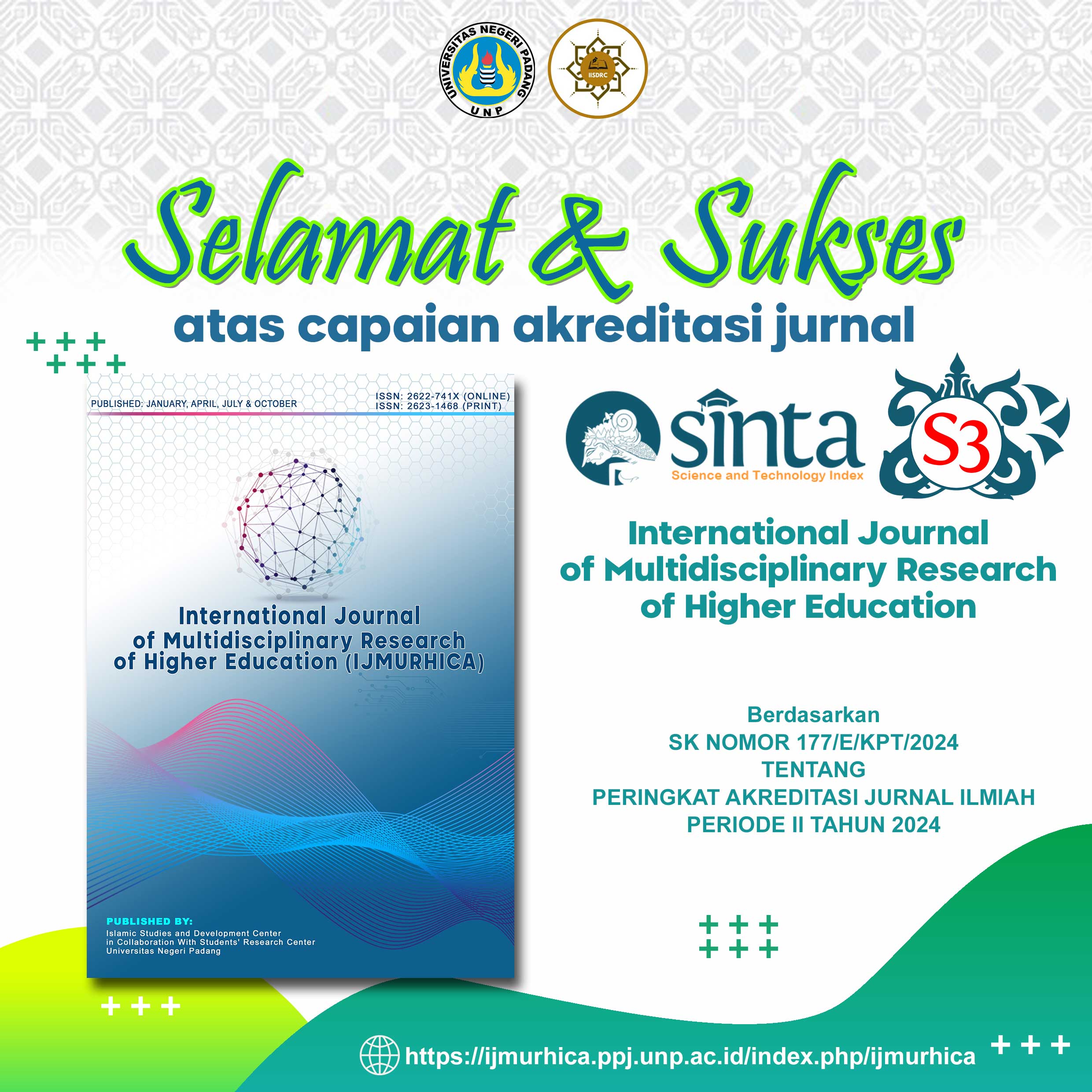Unraveling the Impact of Verbal Harassment as Social Delinquency on Indonesian Adolescents
DOI:
https://doi.org/10.24036/ijmurhica.v8i2.341Keywords:
Verbal harassment, adolescents, mental health, social delinquencyAbstract
During social delinquency, social distancing measures led to a significant rise in verbal harassment targeting adolescents in Indonesia. This study employs a descriptive-analytical approach and collects data through an online questionnaire administered to adolescents aged 11 to 24, with a total population of 182 individuals and a sample size of 182 respondents. The analytical tool used in this research includes the Childhood Experiences of Harassment Questionnaire (CEVQ) to measure verbal harassment experiences from peers and parents. Data analysis techniques include descriptive statistics and qualitative content analysis, allowing for a comprehensive understanding of the phenomenon. Findings revealed that adolescents, particularly girls, were more vulnerable to verbal harassment, resulting in heightened anxiety, depression, and feelings of inadequacy. Parental verbal harassment significantly affected cognitive development, self-confidence, and problem-solving skills in adolescents, highlighting the deterioration of their social and psychological conditions due to prolonged isolation during the pandemic. The implications of this study emphasize the necessity for interventions to address verbal harassment both within family settings and schools, underscoring the importance of psychological support for affected adolescents. Communities, schools, and families must collaborate to create safer, more supportive environments for adolescent mental health while establishing educational programs to raise awareness about the effects of verbal abuse among parents and the broader community.
Downloads
Downloads
Published
How to Cite
Issue
Section
License
Copyright (c) 2025 Budiawan, Alvianus Dengen

This work is licensed under a Creative Commons Attribution-ShareAlike 4.0 International License.






